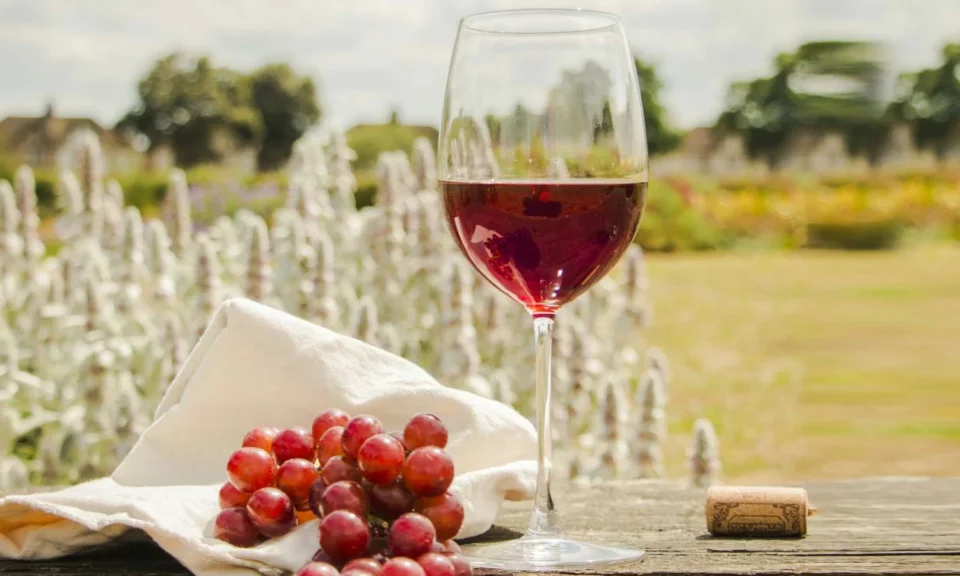The art of winemaking and enjoyment has been a human tradition for millennia. With the advent of the digital age, this time-honored practice has been infused with technology, evolving the way connoisseurs and casual wine drinkers select, preserve, and savor their favorite vintages. In an era where convenience is cherished, tech advancements in the wine industry have been particularly impactful.
The Role of Tech in Wine Selection
Selecting the right wine to complement a meal or occasion can be daunting and diverse. The technological age has elegantly simplified this task by developing user-friendly platforms that provide personalized wine recommendations. These digital sommeliers tap into an extensive database of wines, using algorithms that learn from individual consumer preferences and taste profiles to suggest bottles that promise to delight the palate. The interactivity and responsive nature of these platforms have opened a gateway to exploring new labels, varietals, and regions, turning an often-overwhelming experience into one that is enjoyable, educational, and accessible to all levels of wine enthusiasts. Now, with invaluable resources such as coupons available with a simple click, it is more convenient for wine lovers to access a variety of wines at reasonable prices.
Virtual Vineyards: From Online Tours to Tasting Sessions
In response to global travel restrictions and a growing demand for remote experiences, the wine industry has crafted alternative journeys to the vineyards through online tours and virtual tasting sessions. These digital excursions allow enthusiasts to “visit” wineries across the globe and learn about the terroir, grape varieties, and winemakers’ philosophies from their digital devices. Wine professionals guide viewers through the vineyard rows, explore the nuances of the winemaking process, and host live tasting sessions that can include specially shipped wine samples to participants’ homes. This virtual modality has made wine tourism more inclusive, serving as a bridge to vineyards that may have previously been out of reach, thus democratizing the luxury of wine exploration.
Data-Driven Decisions for Wine Lovers
Decisions in wine purchasing have become increasingly informed thanks to integrating data analytics into the buying process. Online reviews, detailed ratings, and consumer feedback now play crucial roles in influencing the choices of discerning wine shoppers. Websites dedicated to the wine industry collect and analyze data to comprehensively examine how the public receives specific wines. This collective insight, paired with detailed tasting notes, enables individuals to make educated choices—even leading to the discovery of underrated wines that may have previously gone unnoticed. This democratization of wine knowledge ensures that regardless of one’s level of expertise, there is an equal opportunity to enjoy exceptional wines.
Customized Wine Journeys
Advancements in technology have also given rise to subscription-based models, which provide curated wine experiences tailored to individual preferences. These services often begin with a palate quiz, which informs their algorithmic recommendations for wines suited to the user’s taste profile. Every box delivered is a chance to explore new wine territories, with personalized selections offering exposure to diverse regions, grape types, and winemaking styles. This bespoke approach disrupts traditional wine-buying habits. It supports the discovery of niche and artisanal winemakers that might otherwise remain obscure.
Apps and Accessories for the Modern Connoisseur
Today’s tech-savvy wine lover has access to many applications and gadgets designed to enhance their viniculture experience. From apps that catalog personal collections and recommend food pairings to ones that manage optimum serving temperatures, these innovations bring a new level of sophistication and convenience. Tech manufacturers have also developed devices such as electronic wine dispensers that preserve and serve wine in ideal conditions and add elegance to the serving experience. These applications and accessories symbolize the intersection of tradition and modernity, empowering enthusiasts to manage their wine journey with precision and knowledge.
The Science Behind Wine Preservation
The quest to extend the life of opened bottles has seen remarkable progress with the invention of sophisticated wine preservation systems. These devices often employ inert gases or create a vacuum seal to protect wine from oxidation, allowing enthusiasts to savor a single bottle across several days without losing quality. The results are twofold: less waste and the ability to enjoy premium wines without the pressure to consume them in one sitting. These technological solutions respect the integrity of the wine and make collecting and enjoying high-quality wines more practical and sustainable.
Online Education and Certifications for Wine Enthusiasts
The proliferation of online education tools has made wine learning more accessible. Numerous courses, webinars, and certifications are now available online, allowing wine lovers to expand their knowledge about topics ranging from viticulture and enology to wine business and service. Such resources empower learners to delve into wine at their own pace, fitting their education around personal and professional commitments. This flexible learning approach fosters a new generation of knowledgeable enthusiasts and industry professionals.
Sustainability in the Wine Industry: Tech’s Role
The wine industry has not been left behind within the context of a planet conscious of its ecological footprint. Cutting-edge technologies contribute to sustainable viticulture practices, which include water conservation, reduced reliance on harmful pesticides, and energy-efficient production methods. Tech solutions that monitor soil moisture levels, for instance, are leading to smarter irrigation practices that save water and encourage the production of more robust, flavorful grapes. This shift towards sustainability, while beneficial to the environment, is also enticing to consumers who increasingly support eco-friendly brands.
The Future of Wine Tech: What’s Next?
Looking forward, the trajectory of wine technology is as promising as it is exciting. Augmented reality (AR) is beginning to find its place on wine labels, offering consumers an interactive storytelling experience about the wine’s heritage and crafting process. Innovations such as blockchain are poised to guarantee the authenticity and traceability of wines, enhancing security and consumer trust in their chosen products.

